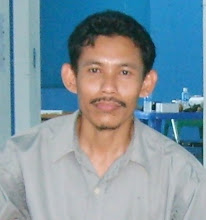 The East Javanese town of Ponorogo, nestled in a remote valley between two extinct volcanoes, has long had a reputation throughout the island for the magical powers and sexual potency of its inhabitants. It has a long history of violent and radical politics, with a well-established tradition of rebellion. Two figures central to this image are the warok and gemblak. The term warok is said to originate from the Javanese words uwal and rokan meaning to be free from forced labour.Due to their martial and magical abilities, the warok were often advisers and strong men for the local ruler, and hence free from the obligations of ordinary villagers. Another popular interpretation suggests that the term originates from the Arabic word waro'a, meaning an ascetic, or one who practises mysticism. Onghokham draws attention to the influence of warok and jago (men of prowess] as leaders in village political life. The warok was rarely part of the official government, and thus played a somewhat ambiguous role, residing in the margins of social and political life. On the one hand his standing amongst villagers made his support crucial for any aspiring ruler and he often acted as an agent for higher authorities. At the same time, however, his unofficial status also made him a potentially dangerous adversary and troublemaker. The warok was a power broker, an intermediary between higher and lower powers, in the concrete and cosmological sense. His authority was intensely personal, depending on mastery of invulnerability, silat [martial arts], magic, and religious knowledge, as well as the fear and admiration with which villagers regarded him.
The East Javanese town of Ponorogo, nestled in a remote valley between two extinct volcanoes, has long had a reputation throughout the island for the magical powers and sexual potency of its inhabitants. It has a long history of violent and radical politics, with a well-established tradition of rebellion. Two figures central to this image are the warok and gemblak. The term warok is said to originate from the Javanese words uwal and rokan meaning to be free from forced labour.Due to their martial and magical abilities, the warok were often advisers and strong men for the local ruler, and hence free from the obligations of ordinary villagers. Another popular interpretation suggests that the term originates from the Arabic word waro'a, meaning an ascetic, or one who practises mysticism. Onghokham draws attention to the influence of warok and jago (men of prowess] as leaders in village political life. The warok was rarely part of the official government, and thus played a somewhat ambiguous role, residing in the margins of social and political life. On the one hand his standing amongst villagers made his support crucial for any aspiring ruler and he often acted as an agent for higher authorities. At the same time, however, his unofficial status also made him a potentially dangerous adversary and troublemaker. The warok was a power broker, an intermediary between higher and lower powers, in the concrete and cosmological sense. His authority was intensely personal, depending on mastery of invulnerability, silat [martial arts], magic, and religious knowledge, as well as the fear and admiration with which villagers regarded him.Read more>>
http://intersections.anu.edu.au/issue2/Warok.html


1 comment:
Mas, denger-denger ini sempet mau di patent-kan sama Malaysia ya??
Tapi ga jadi kan mas??
Post a Comment